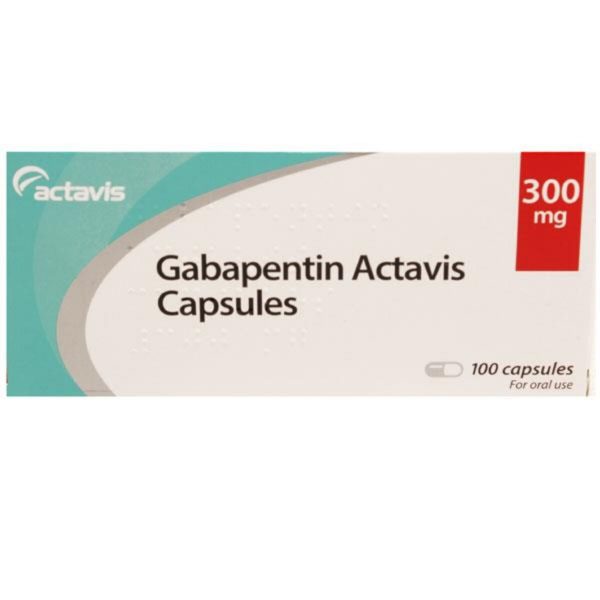- Paroxetine 10mg Tablets
- Paroxetine 20mg Tablets
- Paroxetine 30mg Tablets
- Description
- Additional Information
- Brand
- How To Use
- Product Details
- Side Effects
- Ingredients
- How to Store
- Patient Information leaflet
- Reviews (0)
- Questions & Answers
Paroxetine Tablets, 30 Tablets
Introducing Paroxetine Tablets: Effective Treatment for Depression and Anxiety Disorders
Paroxetine Tablets, available in 10mg, 20mg, and 30mg strengths, offer a powerful solution for adults struggling with a range of anxiety disorders and depression. As a member of the selective serotonin reuptake inhibitors (SSRIs) family, Paroxetine works by enhancing serotonin levels in the brain, which can improve mood and alleviate the symptoms of anxiety. This medication is effective for treating conditions such as obsessive-compulsive disorder, panic disorder, social anxiety disorder, post-traumatic stress disorder, and generalized anxiety disorder. It is also recognized for its use in managing symptoms of premature ejaculation and can be prescribed for certain behavioural issues in pets, including aggression and anxiety.
Product Benefits:
- Comprehensive Mental Health Support: Targets and alleviates symptoms of various anxiety disorders and depression.
- Versatile Treatment Options: Effective in treating human psychological disorders as well as behavioral problems in pets.
- Enhanced Serotonin Levels: Works by increasing serotonin in the brain to help improve mood and reduce anxiety.
- Multiple Strengths Available: Tailored dosing options to meet individual therapeutic needs with tablets available in 10mg, 20mg, and 30mg.
How to Use:
- Dosage and Administration: Take Paroxetine Tablets as prescribed by your healthcare provider. The medication can be taken with or without food, typically once daily in the morning.
- Consistent Use: For best results, use consistently as directed. It may take several weeks to feel the full benefit of the medication.
- Monitoring: Regular follow-ups with your healthcare provider are important to adjust dosages and monitor side effects.
Why Choose Paroxetine Tablets? Paroxetine Tablets are an essential treatment for those seeking relief from persistent anxiety and depressive disorders. Their efficacy in increasing serotonin levels makes them a trusted choice for long-term management of mental health. Additionally, their application in veterinary medicine provides a valuable tool for managing pet behaviors.
Remember, treating depression and anxiety disorders properly is crucial for your overall well-being and quality of life. With Paroxetine Tablets, you can take a proactive step toward reclaiming control over your mental health.
Don’t let depression and anxiety hold you back. Speak to your healthcare professional about Paroxetine Tablets today and embark on your journey toward a brighter tomorrow.
Stop Your Dog’s Aggression, Anxiety, and Obsessive Behaviors! Paroxetine Tablets Can Help. Plus, It Can Also Treat Your CAT’s Aggression, Urine Marking, and Other Behavior Problems. Speak to your vet about Paroxetine.
Paroxetine can also be used to treat premature ejaculation
Paroxetine Tablets Reviews
After using Paroxetine Tablets, it’s helpful to let others know about your experience. Reviews of an item help other users know that medicines received have helped the condition it is claimed for, how well the treatment worked or any issues to be aware of. We invite our users to leave a review of both their treatment and of the service provided. Click on the reviews tab to see if there has been feedback on this item.
What is the price of Paroxetine Tablets?
The price of Paroxetine Tablets is £5.00
Where can you buy Paroxetine Tablets?
You can buy Paroxetine Tablets at Dock Pharmacy Essex UK, UK Online Pharmacy.
Can you buy Paroxetine Tablets Over the counter?
Paroxetine Tablets is not available to buy over the counter. You need a prescription to buy Paroxetine Tablets
Disclaimer: Always consult with a healthcare professional or veterinarian before starting any new medication to ensure it is suitable for your or your pet’s condition. Be aware of potential side effects and the importance of adherence to prescribed treatments.
| Brand | |
|---|---|
| Strengths | 10mg Tablets, 20mg Tablets, 30mg Tablets |
Brand
Paroxetine
How To Use
How to take Paroxetine
Always take this medicine exactly as your doctor has told you. Check with your doctor or pharmacist if you are not sure.
Sometimes you may need to take more than one tablet or half a tablet. This table will show you how many tablets to take.
Your doctor will advise you what dose to take when you first start taking Paroxetine. Most people start to feel better after a couple of weeks. If you don’t start to feel better after this time, talk to your doctor, who will advise you. He or she may decide to increase the dose gradually, 10 mg at a time, up to a maximum daily dose.
Take your tablets in the morning with food. Swallow them with a drink of water. Do not chew. Your doctor will talk to you about how long you will need to keep taking your tablets. This may be for many months or even longer.
Product Details
What you need to know before you take Paroxetine
Do not take Paroxetine – if you are allergic to paroxetine or any of the other ingredients of this medicine (listed in section 6) – If you are taking medicines called monoamine oxidase inhibitors (MAOIs, including moclobemide and methylthioninium chloride (methylene blue)), or have taken them at any time within the last two weeks. Your doctor will advise you how you should begin taking Paroxetine once you have stopped taking the MAOI. – If you are taking an anti-psychotic called thioridazine or an anti-psychotic called pimozide If any of these apply to you, tell your doctor without taking Paroxetine. Warnings and precautions Talk to your doctor or pharmacist before taking Paroxetine – Are you taking any other medicines (see Taking other medicines and Paroxetine, inside this leaflet)? – Are you taking tamoxifen to treat breast cancer or fertility problems? Paroxetine may make tamoxifen less effective, so your doctor may recommend you take another antidepressant. – Do you have kidney, liver or heart trouble? – Do you have epilepsy or have a history of fits or seizures? – Have you ever had episodes of mania (overactive behaviour or thoughts)? – Are you having electro-convulsive therapy (ECT)? – Do you have a history of bleeding disorders, or are you taking other medicines that may increase the risk of bleeding (these include medicines used to thin the blood, such as warfarin, anti-psychotics such as perphenazine or clozapine, tricyclic antidepressants, medicines used for pain and inflammation called non-steroidal anti-inflammatory drugs or NSAIDs, such as acetylsalicylic acid, ibuprofen, celecoxib, etodolac, diclofenac, meloxicam)? – Do you have diabetes? – Are you on a low sodium diet? – Do you have glaucoma (pressure in the eye)? – Are you pregnant or planning to get pregnant (see Pregnancy, breast-feeding and Paroxetine, inside this leaflet)? – Are you under 18 years old (see Children and adolescents under 18, inside this leaflet)? – If you are taking buprenorphine-containing medicinal products. The use of these medicines together with Paroxetine can lead to serotonin syndrome, a potentially lifethreatening condition (see “Other medicines and Paroxetine” If you answer YES to any of these questions, and you have not already discussed them with your doctor,go back to your doctor and ask what to do about taking Paroxetine. – Use in children and adolescents under 18 years of age: Paroxetine should normally not be used for children and adolescents under 18 years. Also you should know that patients under 18 have an increased risk of side effects such as suicide attempt, suicidal thoughts and hostility (predominantly aggression, oppositional behaviour and anger) when they take this class of medicines. If your doctor has prescribed Paroxetine for you (or your child) and you want to discuss this, please go back to your doctor. You should inform your doctor if any of the symptoms listed above develop or worsen when you (or your child) are taking Paroxetine. Also, the long-term safety effects concerning growth, maturation and cognitive and behavioral development of Paroxetine in this age group have not yet been demonstrated. In studies of Paroxetine in under 18s, common side effects that affected less than 1 in 10 children/adolescents were: an increase in suicidal thoughts and suicide attempts, deliberately harming themselves, being hostile, aggressive or unfriendly, lack of appetite, shaking, abnormal sweating, hyperactivity (having too much energy), agitation, changing emotions (including crying and changes in mood) and unusual bruising or bleeding (such as nose bleeds). These studies also showed that the same symptoms affected children and adolescents taking sugar pills (placebo) instead of Paroxetine, although these were seen less often. Some patients in these studies of under 18s had withdrawal effects when they stopped taking Paroxetine. These effects were mostly similar to those seen in adults after stopping Paroxetine (see Section 3, How to take Paroxetine, inside this leaflet). In addition, patients under 18 also commonly (affecting less than 1 in 10) experienced stomach ache, feeling nervous and changing emotions (including crying, changes in mood, trying to hurt themselves, thoughts of suicide and attempting suicide). – Thoughts of suicide and worsening of your depression or anxiety disorder: If you are depressed and/or have anxiety disorders you can sometimes have thoughts of harming or killing yourself. These may be increased when first starting antidepressants, since these medicines all take time to work, usually about two weeks but sometimes longer. You may be more likely to think like this: – If you have previously had thoughts about killing or harming yourself. – If you are a young adult. Information from clinical trials has shown an increased risk of suicidal behaviour in adults aged less than 25 years with psychiatric conditions who were treated with an antidepressant. If you have thoughts of harming or killing yourself at any time, contact your doctor or go to a hospital straight away. You may find it helpful to tell a relative or close friend that you are depressed or have an anxiety disorder, and ask them to read this leaflet. You might ask them to tell you if they think your depression or anxiety is getting worse, or if they are worried about changes in your behaviour. Important side effects seen with Paroxetine Some patients who take Paroxetine develop something called akathisia, where they feel restless and feel like they can’t sit or stand still. Other patients develop something called serotonin syndrome or neuroleptic malignant syndrome, where they have some or all of the following symptoms: feeling very agitated or irritable, feeling confused, feeling restless, feeling hot, sweating, shaking, shivering, hallucinations (strange visions or sounds), muscle stiffness, sudden jerks of the muscles or a fast heartbeat. The severity can increase, leading to loss of consciousness. If you notice any of these symptoms, contact your doctor. For more information on these or other side effects of Paroxetine, see Section 4, Possible Side Effects, inside this leaflet. Medicines like Paroxetine (so called SSRIs/SNRIs) may cause symptoms of sexual dysfunction (see section 4). In some cases, these symptoms have continued after stopping treatment. Other medicines and Paroxetine Tell your doctor or pharmacist if you are taking, have recently taken or might take any other medicines Some medicines can affect the way Paroxetine works, or make it more likely that you’ll have side effects. Paroxetine can also affect the way some other medicines work. These include: • Medicines called monoamine oxidase inhibitors (MAOIs, including moclobemide and methylthioninium chloride (methylene blue) – see Do not take Paroxetine, inside this leaflet. • Thioridazine or pimozide, which are anti-psychotics- see Do not take Paroxetine, inside this leaflet. • Acetylsalicylic acid, ibuprofen or other medicines called NSAIDs (non-steroidal antiinflammatory drugs) like celecoxib, etodolac, diclofenac and meloxicam, used for pain and inflammation. • Tramadol and pethidine, painkillers • Medicines called triptans, such as sumatriptan, used to treat migraine • Other antidepressants including other SSRIs, and tricyclic antidepressants like clomipramine, nortriptyline and desipramine • A dietary supplement called tryptophan • Medicines such as lithium, risperidone, perphenazine and clozapine (called antipsychotics) used to treat some psychiatric conditions. • Fentanyl, used in anaesthesia or to treat chronic pain • A combination of fosamprenavir and ritonavir, which is used to treat Human Immunodeficiency Virus (HIV) infection. • St John’s Wort, a herbal remedy for depression • Phenobarbital, phenytoin, sodium valproate or carbamazapine, used to treat fits or epilepsy • Atomoxetine which is used to treat attention deficit hyperactivity disorder (ADHD) • Procyclidine, used to relieve tremor, especially in Parkinson’s Disease. • Warfarin or other medicines (called anticoagulants) used to thin the blood • Propafenone, flecainide and medicines used to treat an irregular heart beat • Metoprolol, a beta-blocker used to treat high blood pressure and heart problems. • Pravastatin, used to treat high cholesterol • Rifampicin, used to treat tuberculosis (TB) and leprosy • Linezolid, an antibiotic • Tamoxifen, which is used to treat breast cancer or fertility problems. • Some medicines may increase the side effects of Paroxetine and may sometimes cause very serious reactions. Do not take any other medicines whilst taking Paroxetine without first talking to your doctor, especially: • buprenorphine-containing medical products. These medicines may interact with Paroxetine and you may experience symptoms such as involuntary, rhythmic contractions of muscles, including the muscles that control movement of the eye, agitation, hallucinations, coma, excessive sweating, tremor, exaggeration of reflexes, increased muscle tension, body temperature above 38°C. Contact your doctor when experiencing such symptoms → If you are taking or have recently taken any of the medicines in this list, and you have not already discussed these with your doctor, go back to your doctor and ask what to do. The dose may need to be changed or you may need to be given another medicine. Tell your doctor or pharmacist if you are taking, have recently taken or might take any other medicines, including medicines obtained without a prescription. Paroxetine with food and drink and alcohol Food: The tablets should be taken in the morning with food. This will reduce the likelihood of you feeling sick (nausea). Alcohol: Do not drink alcohol while you are taking Paroxetine. Alcohol may take your symptoms or side effects worse Pregnancy and, breast-feeding and fertility Pregnancy: If you are pregnant or breast-feeding, think you may be pregnant or are planning to have a baby, ask your doctor or pharmacist for advice before taking this medicine. In babies whose mother took paroxetine during the first few months of pregnancy, there have been some reports showing an increased risk of birth defects, in particular those affecting the heart. In the general population, about 1 in 100 babies are born with a heart defect. This increased to about to 2 in 100 babies in mothers who took paroxetine. You and your doctor may decide that it is better for you to change to another treatment or to gradually stop taking Paroxetine while you are pregnant. However depending on your circumstances, your doctor may suggest that it is better for you to keep taking Paroxetine. Make sure your midwife or doctor know you’re taking Paroxetine. When taken during pregnancy, particularly late pregnancy, medicines like Paroxetine may increase the risk of a serious condition in babies, called persistent pulmonary hypertension of the newborn (PPHN). In PPHN, the blood pressure in the blood vessels between the baby’s heart and the lungs is too high. If you take Paroxetine during the last 3 months of pregnancy, your newborn baby might also have other conditions, which usually begin during the first 24 hours after birth. Symptoms include: – trouble breathing – a bluish skin or being too hot or cold – blue lips – vomiting or not feeding properly – being very tired, not able to sleep or crying a lot – stiff or floppy muscles – tremors, jitters or fits – exaggerated reflexes. If your baby has any of these symptoms when it is born, or you are concerned about your baby’s health, contact your doctor or midwife who will be able to advise you. If you take Paroxetine near the end of your pregnancy there may be an increased risk of heavy vaginal bleeding shortly after birth, especially if you have a history of bleeding disorders. Your doctor or midwife should be aware that you are taking Paroxetine so they can advise you. Breast-feeding: Paroxetine may pass into breast milk in very small amounts. If you are taking Paroxetine, go back and talk to your doctor before you start breast-feeding. You and your doctor may decide that you can breast-feed while you are taking Paroxetine. Fertility: Paroxetine has been shown to reduce the quality of sperm in animal studies. Theoretically, this could affect fertility, but impact on human fertility has not been observed as yet. Driving and using machines Possible side effects of Paroxetine include dizziness, confusion, feeling sleepy or blurred vision. If you do get these side effects, do not drive or use machinery. Paroxetine contains lactose Paroxetine contains small amount of lactose. If you have been told by your doctor that you have an intolerance to some sugars, contact your doctor before taking this medicinal product. Paroxetine contains sodium This medicinal product contains less than 1 mmol sodium (23 mg) per each tablet, that is to say essentially ‘sodium-free’.
Side Effects
Possible Side Effects
Like all medicines, this medicine, can cause side effects, although not everybody gets them. Side effects are more likely to happen in the first few weeks of taking Paroxetine. See the doctor if you get any of the following side effects during treatment You may need to contact your doctor or go to a hospital straight away. Uncommon (may affect up to 1 in 100 people): • If you have unusual bruising or bleeding, including vomiting blood or passing blood in your stools, contact your doctor or go to a hospital straight away. • If you find that you are not able to pass water, contact your doctor or go to a hospital straight away. Rare (may affect up to 1 in 1000 people): If you experience seizures (fits), contact your doctor or go to a hospital straight away. • If you feel restless and feel like you can’t sit or stand still, you may have something called akathisia. Increasing your dose of Paroxetine may make these feelings worse. If you feel like this, contact your doctor. • If you feel tired, weak or confused and have achy, stiff or uncoordinated muscles this may be because your blood is low in sodium. If you have these symptoms, contact your doctor. Very rare (may affect up to 1 in 10,000 people): • Allergic reactions, which may be severe to Paroxetine If you develop a red and lumpy skin rash, swelling of the eyelids, face, lips, mouth or tongue, start to itch or have difficulty breathing (shortness of breath) or swallowing and feel weak or lightheaded resulting in collapse or loss of consciousness, contact your doctor or go to a hospital straight away. • If you have some or all of the following symptoms you may have something called serotonin syndrome or neuroleptic malignant syndrome. The symptoms include: feeling very agitated or irritable, feeling confused, feeling restless, feeling hot, sweating, shaking, shivering, hallucinations (strange visions or sounds), muscle stiffness, sudden jerks of the muscles or a fast heartbeat. The severity can increase, leading to loss of consciousness. If you feel like this contact your doctor. • Acute glaucoma. If your eyes become painful and you develop blurred vision, contact your doctor. Frequency unknown • Aggression • Some people have had thoughts of harming or killing themselves while taking Paroxetine or soon after stopping treatment (see Section 2, Before you take Paroxetine). If you experience these side effects, contact your doctor. Other possible side effects during treatment Very common (may affect more than 1 in 10 people): • Feeling sick (nausea). Taking your medicine in the morning with food will reduce the chance of this happening. • Change in sex drive or sexual function. For example, lack of orgasm and, in men, abnormal erection and ejaculation. Common (may affect up to 1 in 10 people): • Increases in the level of cholesterol in the blood • Lack of appetite • Not sleeping well (insomnia) or feeling sleepy • Abnormal dreams (including nightmares) • Feeling dizzy or shaky (tremors) • Headache • Difficulty in concentrating • Feeling agitated • Feeling unusually weak • Blurred vision • Yawning, dry mouth • Diarrhoea or constipation • Vomiting • Weight gain • Sweating. Uncommon (may affect up to 1 in 100 people): • A brief increase in blood pressure, or a brief decrease that may make you feel dizzy or faint when you stand up suddenly • A faster than normal heartbeat • Lack of movement, stiffness, shaking or abnormal movements in the mouth and tongue • Dilated pupils • Skin rashes • Itching • Feeling confused • Having hallucinations (strange visions or sounds) • An inability to urinate (urinary retention) or an uncontrollable, involuntary passing of urine (urinary incontinence). • If you are a diabetic patient you may notice a loss of control of your blood sugar levels whilst taking Paroxetin. Please speak to your doctor about adjusting the dosage of your insulin or diabetes medications. Rare (may affect up to 1 in every 1,000 people): • Abnormal production of breast milk in men and women • A slow heartbeat • Effects on the liver showing up in blood tests of your liver function • Panic attacks • Overactive behaviour or thoughts (mania) • Feeling detached from yourself (depersonalisation) • Feeling anxious • Irresistible urge to move the legs (Restless Legs Syndrome) • Pain in the joints or muscles. • Increase in a hormone called prolactin in the blood • Menstrual period disorders (including heavy or irregular periods, bleeding between periods and absence or delay of periods). Very rare (may affect up to 1 in 10,000 people): • skin rash, which may blister, and looks like small targets (central dark spots surrounded by a paler area, with a dark ring around the edge) called erythema multiforme • A widespread rash with blisters and peeling skin, particularly around the mouth, nose, eyes and genitals (Stevens-Johnson syndrome) • A widespread rash with blisters and skin peeling on much of the body surface (toxic epidermal necrolysis) • Liver problems that make the skin or whites of the eyes go yellow • Syndrome of inappropriate antidiuretic hormone production (SIADH) which is a condition in which the body develops an excess of water and a decrease in sodium (salt) concentration, as a result of improper chemical signals. Patients with SIADH may become severely ill, or may have no symptoms at all • Fluid or water retention (which may cause swelling of the arms or legs) • Sensitivity to sunlight • Painful erection of the penis that won’t go away • Low blood platelet count. Frequency unknown • Tooth grinding Some patients have developed buzzing, hissing, whistling, ringing or other persistent noise in the ears (tinnitus) when they take Paroxetine An increased risk of bone fractures has been observed in patients taking this type of medicines. Not known (cannot be estimated from the available data) • Inflammation of the colon (causing diarrhoea) • Heavy vaginal bleeding shortly after birth (postpartum haemorrhage), see Pregnancy, breast-feeding and fertility in section 2 for more information Reporting of side effects If you get any side effects, talk to your doctor or, pharmacist . This includes any possible side effects not listed in this leaflet. You can also report side effects directly via Yellow Card Scheme Website: www.mhra.gov.uk/yellowcard or search for MHRA Yellow Card in the Google Play or Apple App Store. By reporting side effects you can help provide more information on the safety of this medicine.
Ingredients
What Paroxetine contains
The active substance is Paroxetine.
Each film-coated tablet contains 20 mg of paroxetine (as paroxetine hydrochloride hemihydrate). Each film-coated tablet contains 30 mg of paroxetine (as paroxetine hydrochloride hemihydrate).
Each film-coated tablet contains 10 mg of paroxetine (as paroxetine hydrochloride hemihydrate).
How to Store
How to store Paroxetine
Keep this medicine out of the sight and reach of children. Do not use this medicine after the expiry date which is stated on the carton and blister after EXP. The expiry date refers to the last day of that month. This medicine does not require any special storage conditions. Do not throw away any medicines via wastewater or household waste. Ask your pharmacist how to throw away medicines you no longer use. These measures will help protect the environment
Patient Information leaflet
Click here for the Patient Information leaflet
Please read before using the product
Only logged in customers who have purchased this product may leave a review.
Questions and answers of the customers
There are no questions yet, be the first to ask something for this product.
You Might Also Like
£6.50 – £26.45
Duloxetine Capsules are available in 6 strengths
- Duloxetine 20mg Capsules
- Duloxetine 30mg Capsules
- Duloxetine 40mg Capsules
- Duloxetine 60mg Capsules
- Duloxetine 90mg Capsules
- Duloxetine 120mg Capsules
£6.50 – £26.45
- Availability: in stock
£4.50 – £57.20
Available in 5 strengths:
10mg, 20mg, 30mg, 40mg and 60mg
Learn More£4.50 – £57.20
- Availability: in stock
£5.20 – £27.75
Sertraline Tablets are available in 5 strengths:
- Sertraline 25mg Tablets
- Sertraline 50mg Tablets
- Sertraline 100mg Tablets
- Sertraline 150mg Tablets
- Sertraline 200mg Tablets
£5.20 – £27.75
- Availability: in stock
Other Products From This Seller
£69.50 – £79.95
Griseofulvin Oral Suspension, 200ml Griseofulvin Oral Suspension – Reliable Solution for Fungal Infections Griseofulvin Oral Suspension is a trusted antifungal medication designed to treat infections caused by fungi affecting the hair, skin, scalp, groin, feet, and nails, including ringworm, athlete’s foot, and jock itch. This suspension works by targeting and killing fungi, incorporating itself into […]
Learn More£69.50 – £79.95
- Availability: in stock
Griseofulvin 500mg Tablets, 100 Tablets Griseofulvin 500mg Tablets – Powerful Antifungal Treatment for Fungal Skin Infections Griseofulvin 500mg Tablets are a trusted solution for treating fungal infections affecting the skin, hair, and nails. This antifungal medication works by targeting the fungi responsible for conditions like ringworm, athlete’s foot, jock itch, and nail infections. Griseofulvin incorporates […]
Learn More£174.50
- Availability: in stock
Original price was: £196.50.£189.50Current price is: £189.50.
Fludrocortisone Acetate Solution 0.1mg/ml, 50ml Fludrocortisone Acetate Solution 0.1mg/ml, 50ml is a trusted liquid corticosteroid for treating adrenal insufficiency and electrolyte imbalances in humans and pets. This versatile solution is ideal for managing Addison’s disease and other adrenal health concerns, particularly in cats and dogs. Key Benefits For Humans: Effective treatment for adrenal insufficiency and […]
Learn MoreOriginal price was: £196.50.£189.50Current price is: £189.50.
- Availability: in stock
Fluoxetine Dispersible Tablets 20mg, 28 Tablets Fluoxetine Dispersible Tablets 20mg, 28 Tablets are a highly effective treatment for anxiety, depression, and behavioral challenges in both humans and pets. Whether you’re managing emotional health or addressing behavioral concerns in your furry friends, these tablets offer reliable and trusted relief. Why Choose Fluoxetine Dispersible Tablets? Versatile Treatment […]
Learn More£5.50
- Availability: in stock
Original price was: £34.99.£24.95Current price is: £24.95.
Wahl Extreme Grip Beard Trimmer Precision Grooming with Comfort Grip and Adjustable Cutting Lengths Take Control of Your Grooming with the Wahl Extreme Grip Beard Trimmer Transform your grooming routine with the Wahl Extreme Grip Beard Trimmer, designed for precision, comfort, and versatility. Whether you’re sculpting a sharp beard line, maintaining stubble, or styling longer […]
Learn MoreOriginal price was: £34.99.£24.95Current price is: £24.95.
- Availability: in stock
Original price was: £23.99.£17.95Current price is: £17.95.
WAHL Vogue Corded Hair Clipper for Men Professional Precision with Adjustable Taper Lever and High-Carbon Steel Blades Transform Your Grooming Routine with the WAHL Vogue Corded Hair Clipper for Men Elevate your grooming experience with the WAHL Vogue Corded Hair Clipper, a professional-grade grooming tool designed for men who value precision and performance. Whether you’re […]
Learn MoreOriginal price was: £23.99.£17.95Current price is: £17.95.
- Availability: in stock
Original price was: £30.00.£8.95Current price is: £8.95.
Wahl Peaky Blinders Beard Trimmer Gift Set Limited Edition Cordless Grooming Kit for Men Join the ranks of the Peaky Blinders with the Wahl Peaky Blinders Beard Trimmer Gift Set. This exclusive collaboration between Wahl and the iconic TV series offers a comprehensive grooming solution for the modern gentleman. Key Features: Rechargeable Cordless Trimmer: Equipped […]
Learn MoreOriginal price was: £30.00.£8.95Current price is: £8.95.
- Availability: in stock
Original price was: £54.63.£39.95Current price is: £39.95.
OMRON RS2 Wrist Blood Pressure Monitor Compact and Accurate BP Monitoring The OMRON RS2 Wrist Blood Pressure Monitor is a compact and user-friendly device designed for quick and accurate blood pressure and pulse rate measurements. Utilizing the oscillometric method, it ensures reliable readings with minimal user input. Key Features: Automatic Inflation: The device inflates the […]
Learn MoreOriginal price was: £54.63.£39.95Current price is: £39.95.
- Availability: in stock
Original price was: £69.99.£59.99Current price is: £59.99.
Omron M4 Intelli IT Blood Pressure Monitor Bluetooth-Enabled Upper Arm BP Monitor with Intelli Wrap Cuff The Omron M4 Intelli IT Blood Pressure Monitor is a clinically validated device designed for easy and accurate blood pressure monitoring at home. With Bluetooth connectivity, it seamlessly syncs your readings to the Omron Connect app, allowing you to […]
Learn MoreOriginal price was: £69.99.£59.99Current price is: £59.99.
- Availability: in stock
Original price was: £39.99.£33.95Current price is: £33.95.
Omron M2+ Upper Arm Blood Pressure Monitor The Omron M2+ Upper Arm Blood Pressure Monitor is a fully automatic device designed to provide quick and accurate blood pressure and pulse rate measurements. Utilizing the oscillometric method, it ensures reliable readings with minimal user input. Key Features: IntelliSense Technology: Automatically inflates the cuff to the ideal […]
Learn MoreOriginal price was: £39.99.£33.95Current price is: £33.95.
- Availability: in stock





















Reviews
There are no reviews yet